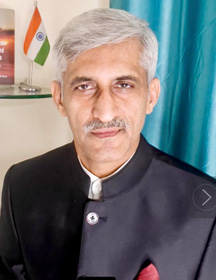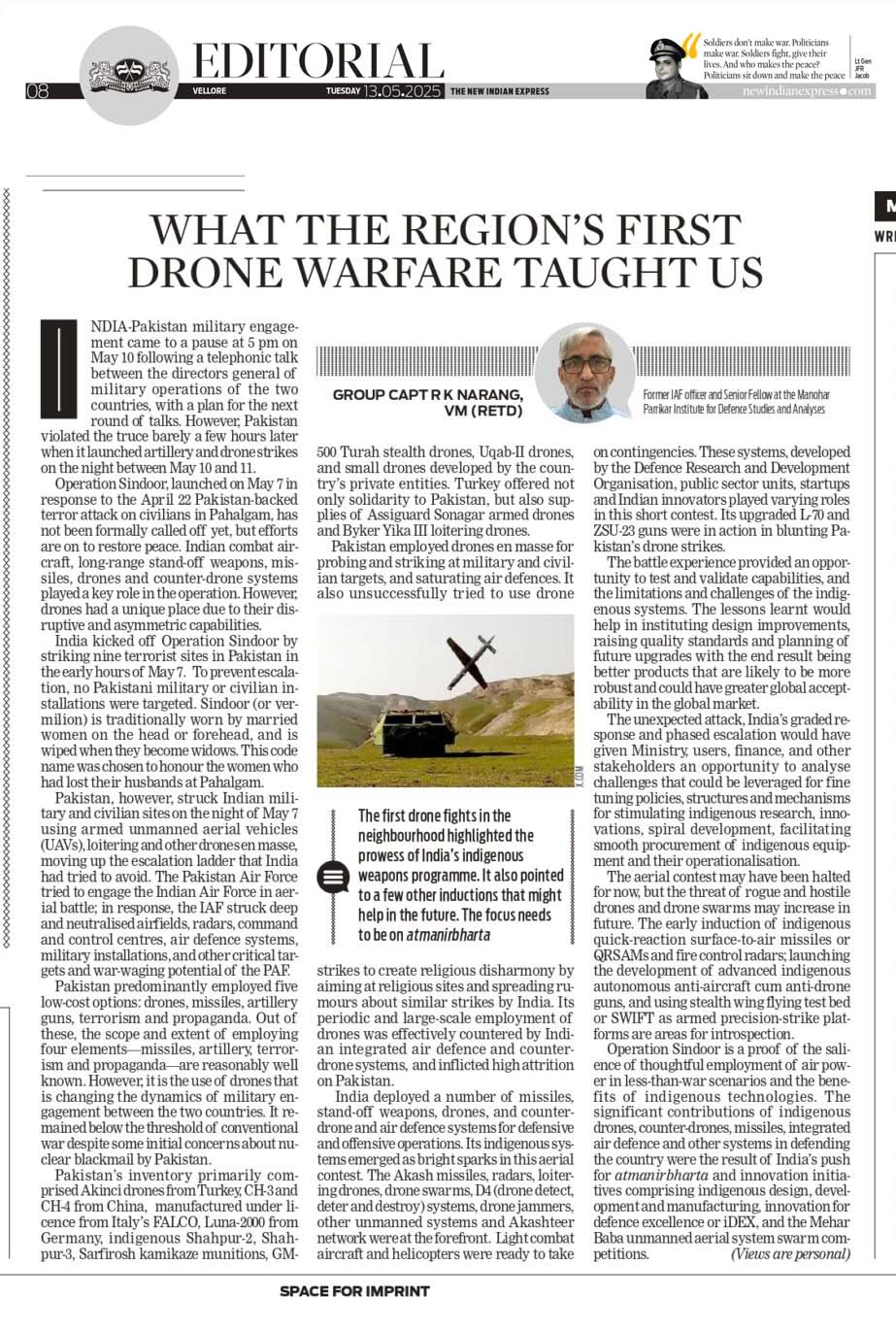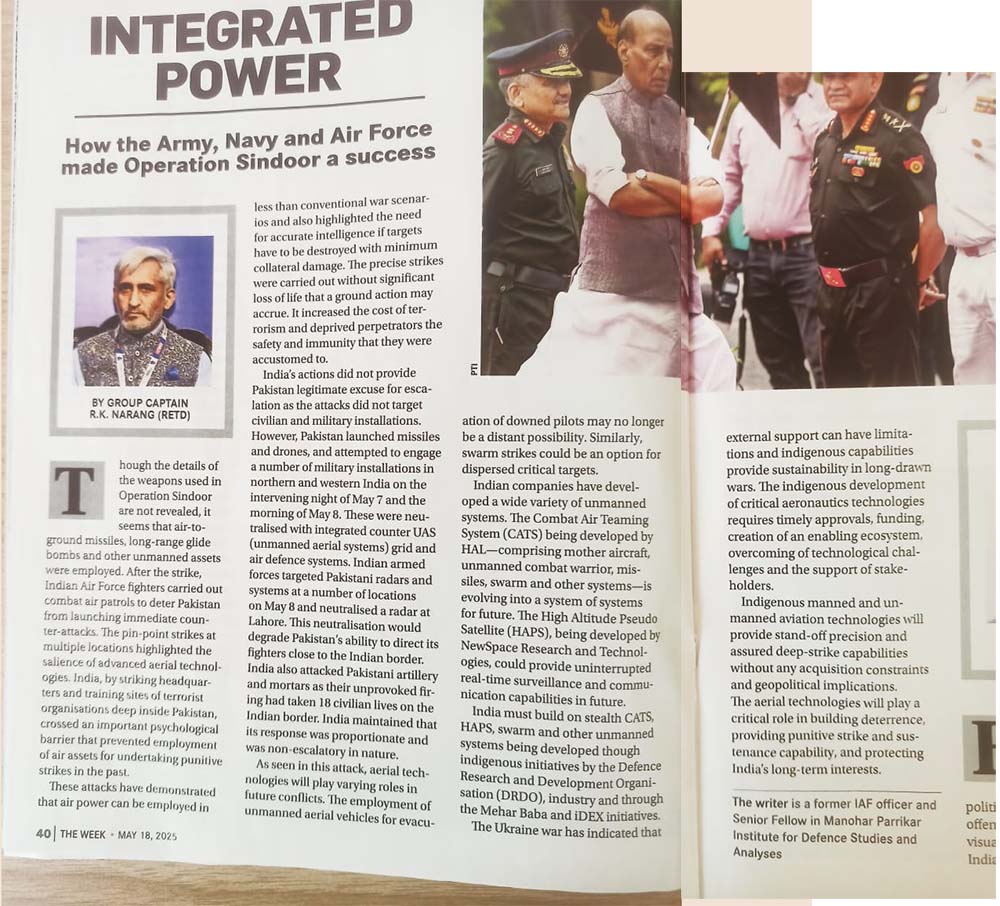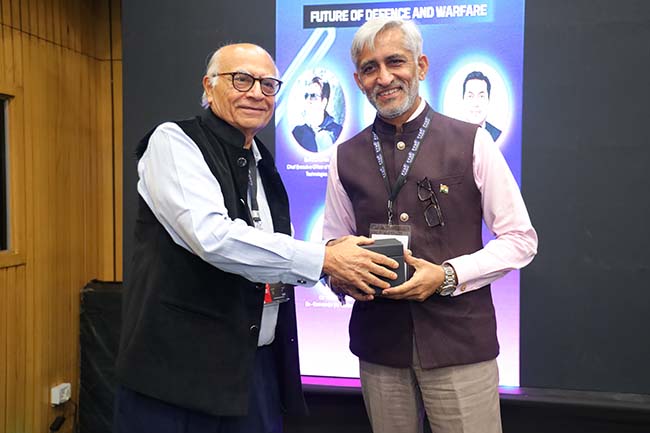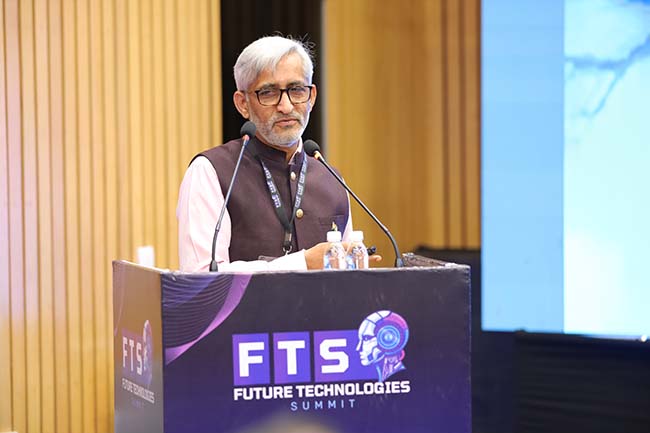RK Narang’s Article ‘Make & Build in India: Self-reliance in Aero-engines through Safran Deal will help bypass delays’ Published in Force Magazine
Senior Fellow, Manohar Parrikar IDSA, Gp Capt (Dr) RK Narang’s article ‘Make & Build in India: Self-reliance in Aero-engines through Safran Deal will help bypass delays’ has been published in the October 2025 edition of the Force Magazine. India needs to create its own design, testing and validation infrastructure to develop wide variety of turbojet, turbofan, turboshaft and turboprop aero engines as power plant for its fighter, transport and trainer aircraft, helicopter and UAV development projects. Currently, most of these programmes remain dependent on either import or on foreign technologies, says Gp Capt Narang. Read Complete Article [+]


